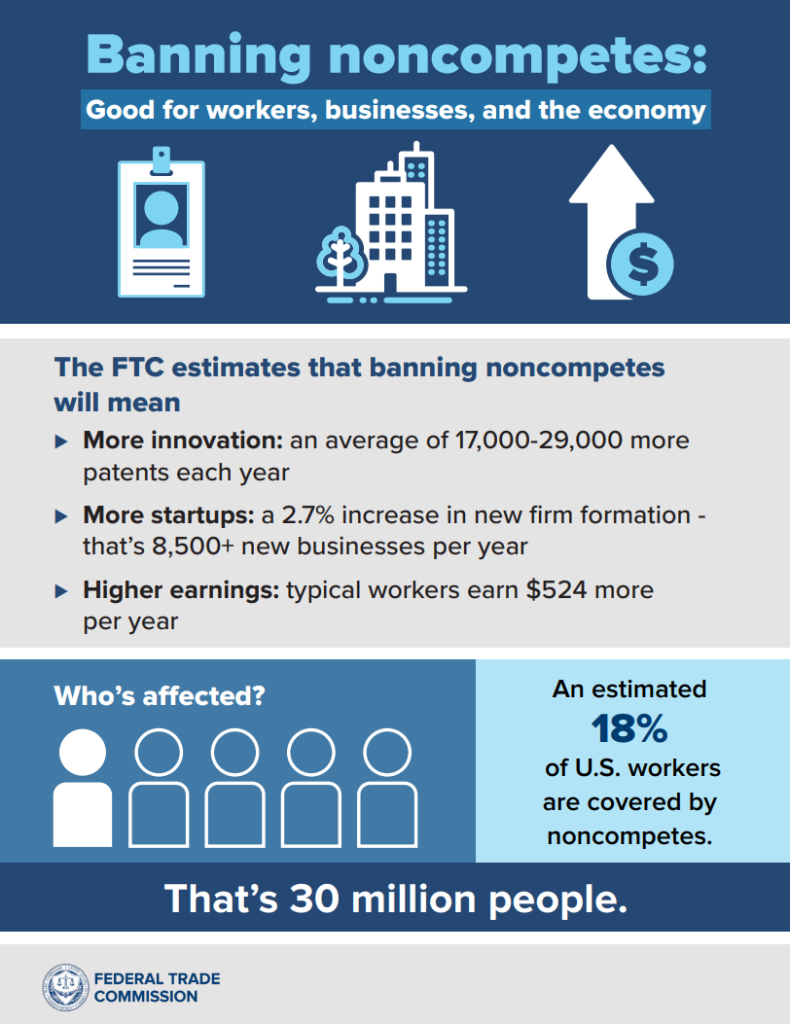Nothing is more un-American than stifling another individual’s pursuit of the American dream.
Yet for years, unchecked noncompete bans have done just that.
Tucked into contracts or presented as standalone documents tied to employment or incentive agreements, noncompetes — some with sweeping and over-broad restrictions that may or may not have truly been enforceable depending on a variety of factors — serve as handcuffs and chains to the American worker, all under the guise of protecting business.
It’s control powered by greed.
They’ve managed to stifle growth and innovation while many underpaid, overworked, and unhappy Americans have remained locked into jobs under the fear that they won’t be able to switch to another company within their chosen field or have the ability to start a company of their own.
On the surface, a noncompete may present an illusion of protecting the company that issued it, but the potential damage — particularly for those below certain income levels — can be immeasurable.
On April 23, following extensive research and calls for public comment, the Federal Trade Commission (FTC) announced a rule to ban noncompetes beginning Sept. 4, 2024. That ban, which voids previously signed noncompetes, covers most American workers aside from certain “senior executives,” defined as “workers earning more than $151,164 annually and who are in policy-making positions.”
Following the formal proposal of the rule in January, the FTC says it received more than 26,000 comments. Of those, more than 25,000 comments supported the ban on noncompetes.

But now there’s a wrinkle in things.
On the same day that the FTC announced its rule, Dallas-based Ryan Law filed a lawsuit challenging it. Joined by the U.S. Chamber of Commerce, Business Roundtable, and others — powerful lobbyists — the challenge continues. This week Judge Ada Brown issued a preliminary injunction to block the rule in Texas. While Brown stopped short of trying to push a national pause, in the Lone Star State the ban will no longer go into effect on Sept. 4, at least for the parties involved in the current lawsuit. Brown says she will issue a ruling on or before August 30.
“The true strength of a company lies in its people.”
That statement, presented by the U.S. Chamber of Commerce in the introduction to its filing, is something I heartily agree with. But the Chamber is itself a business, and one acting on behalf of its members. The Chamber says that it doesn’t want the government getting into the “micromanagement of business,” and I can empathize with that as a fan of shrinking government bloat, but in this case, I believe that the Chamber (and those joining it on this) are wrong.
The biggest issue is that countless noncompetes have trapped folks, presenting roadblocks on the highway to a better future, particularly those below the aforementioned “senior” level. With that, I believe that the benchmark of $151,164 is also too low. In many, if not most, areas, that’s no longer a lot of money, especially for a family to live on. While I support an across-the-board ban on noncompetes in all circumstances, should a salary benchmark remain in place for the defined “senior executives,” I would set the target at $1 million.
If businesses wish to attract and retain good people, they have to take care of them. Throwing chains on them on day one isn’t a great way to start a relationship.
There’s that oft-used phrase, “Don’t mess with Texas,” but when it comes to challenging the FTC ban on noncompetes, let’s mess with Texas and tell them to saddle up and get out of town with this nonsense.
September 4 just might be a new “Independence Day” for more than 30 million American workers who are ready to break free from their chains.
— James Zahn, July 4, 2024





